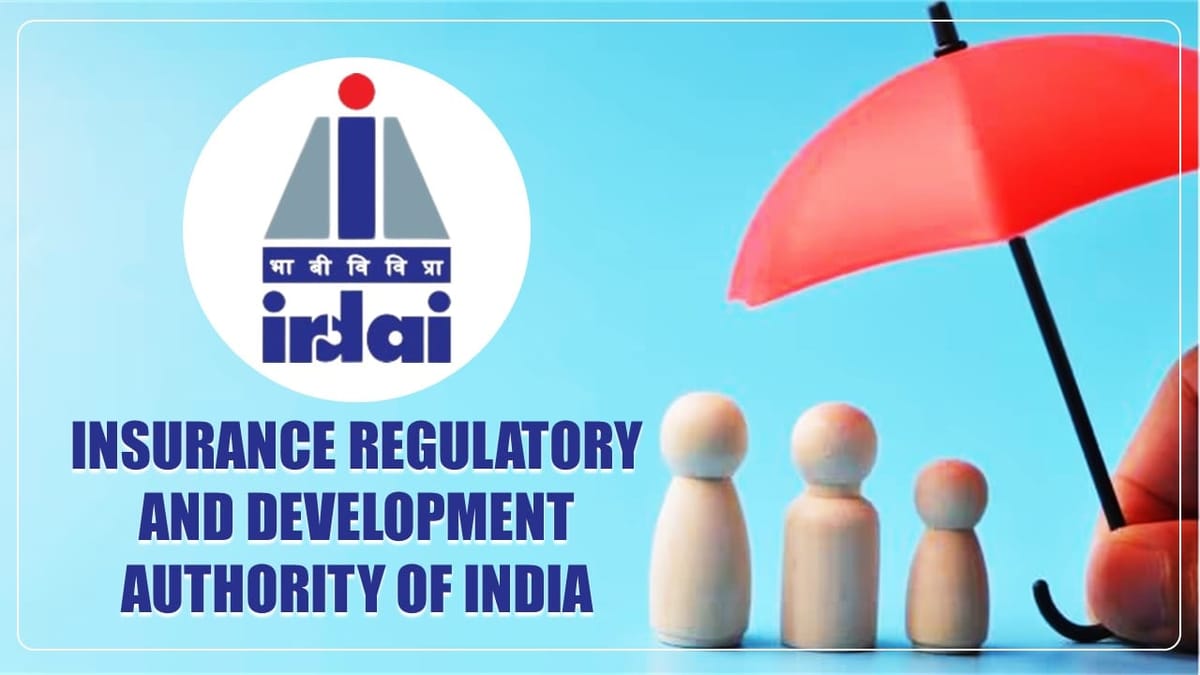Aniket kumar | Oct 5, 2023 |

What is IRDAI, Purpose of IRDAI, Structure of IRDAI, Major Functions of IRDAI
Insurance Regulatory and Development Authority of India(IRDAI):- The Insurance Regulatory and Development Authority of India (IRDAI) is a regulated body under the control of the Ministry of Finance, Government of India. Its work is regulating and licensing the insurance and re-insurance industries in India. It was established on 19th April 2000 by the Insurance Regulatory and Development Authority Act, 1999, an Act of Parliament passed by the Government of India. The authority’s headquarters are in Hyderabad, Telangana, where it moved from Delhi in 2001. The insurance companies in India are regulated by IRDAI. The Insurance Regulatory Development Authority of India (IRDAI) is a statutory body created to protect and control the policyholder’s interest. It also regulates and controls the development of the insurance industry. The IRDAI works in close correlation with the government of India and other regulators such as the Reserve Bank of India (RBI) and the Securities and Exchange Board of India (SEBI). The Authority also has a close coordination relationship with the Insurance Institute of India (III), the educational unit of IRDAI.
Section 4 of the IRDAI Act 1999 describes the IRDAI’s structure that, it has a ten-member body comprising a chairman, five full-time and four part-time members appointed by the government of India. Mr Debasish Panda currently serves as chairman of the IRDAI.
Roles of Supervising:
The main objectives of IRDAI are to supervise all types of insurance company which provides any type of insurance and provide licenses to insurance companies. To regulate investment of funds by Insurance companies, professional organisations connected with the (re)Insurance business; maintenance of margin of solvency. IRDAI provides a code of conduct and practical training for Insurance companies, intermediaries, agents and surveyors. IRDAI protects the interests of policyholders. IRDAI sees all the activities provided by insurance companies to its customers.
Micro Insurance and Rural and Social Sector Obligations:
IRDAI’s key function is that the IRDAI had provide Insurance regulations for the protection of low-income people with accessible Insurance products to help manage and recover from common risks with standard popular Insurance products that comply with certain levels of coverage, premiums and benefits. These regulations have allowed Non-Governmental Organisations (NGOs), Self Help Groups (SHGs) and other permitted entities to act as agents to Insurance companies in marketing the micro Insurance products and have also allowed both life and non-life insurers to promote combi-micro Insurance product
Asset-Liability Management:
The statutory and regulatory structure lays down the norms for the diversification of investments in terms of types of Investment. Investment Regulations lay down the structure for the management of investments. The submission limits are also recommended in the Regulations. The Investment Regulations require a proper technique to be adopted by the insurer to go with the assets and liabilities.
Reinsurance:
IRDAI provides Reinsurance to Insurance companies in India The Authority’s Reinsurance plan of action has been designed to meet the objectives of enhancing retention within the country, ensuring sufficient coverage and developing sufficient capacities within the domestic market.
Corporate Governance:
Corporate Governance Guidelines issued by IRDAI, be need insurers to have in place the required control functions. The supervision of the control functions is given to the Boards of the respective insurer. It lays down the functions responsibilities, and structure of the Board of Directors and the senior management of the companies. Insurers need to adopt sound sagacious principles and practices for the governance of the company and should have the expertise to quickly address issues of non-compliance or weak oversight and controls.
The IRDAI Act is a comprehensive piece of legislation that gives the Authority broad powers to regulate the insurance industry in India. These powers are worked out by the Authority by its various departments, which work together to ensure that insurers adhere to the provisions of the Act and regulations issued under it. The IRDAI has its own rules and regulations to control the working of insurers. It also has the strength to investigate any malpractice by an insurance company. Hence, IRDAI is the only autonomous authority to control and regulate all types of insurance in India.
In case of any Doubt regarding Membership you can mail us at [email protected]
Join Studycafe's WhatsApp Group or Telegram Channel for Latest Updates on Government Job, Sarkari Naukri, Private Jobs, Income Tax, GST, Companies Act, Judgements and CA, CS, ICWA, and MUCH MORE!"